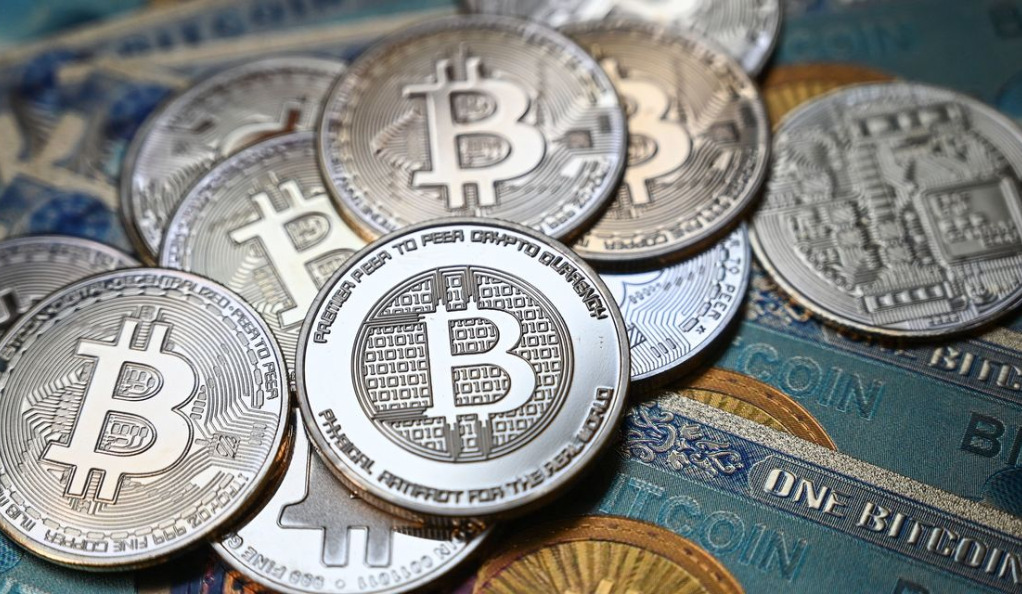Bitcoin, the world’s largest cryptocurrency, has seen a significant surge in its value amidst the Federal Reserve’s decision to raise interest rates. As the central bank implements its plans to combat inflation, investors are turning to alternative investment options, with Bitcoin being a preferred choice. Moreover, the ongoing discussions regarding cryptocurrency regulations in the United States have also played a role in propelling Bitcoin’s growth. This article explores how Bitcoin has responded to these two factors and the implications they may have on the future of cryptocurrency.

Bitcoin Surges as Federal Reserve Raises Interest Rates
The Federal Reserve’s announcement of a hike in interest rates has sent shockwaves through the financial markets. Traditionally, higher interest rates make traditional investments, such as bonds or savings accounts, more attractive by providing a higher return. However, the recent surge in Bitcoin can be attributed to investors seeking alternatives to these conventional investment options. Bitcoin, being a decentralized digital currency, is not directly affected by interest rate changes imposed by central banks. This characteristic has made it an appealing choice for investors looking for a hedge against inflation and potential devaluation of traditional currencies.
Moreover, the rise in Bitcoin’s value can also be attributed to its scarcity. Unlike traditional currencies that can be printed at will, the supply of Bitcoin is limited to 21 million coins. As the demand for Bitcoin increases, so does its price. This scarcity factor, combined with the decentralized nature of the cryptocurrency, has led many investors to view Bitcoin as a store of value similar to gold. Therefore, as the Federal Reserve takes steps to combat inflation and protect the value of traditional currencies, investors are increasingly turning to Bitcoin as a safe haven asset.
Discussion of U.S. Cryptocurrency Regulations Drives Bitcoin’s Growth
Another significant factor driving Bitcoin’s growth is the ongoing discussion surrounding cryptocurrency regulations in the United States. With the increasing popularity of cryptocurrencies, governments around the world have been grappling with how to regulate this emerging market. The United States, being a global financial hub, holds significant influence over the cryptocurrency industry. Any regulatory decisions made by U.S. authorities can have a profound impact on the market sentiment and the overall adoption of cryptocurrencies.
The discussions and debates surrounding cryptocurrency regulations have created both uncertainty and optimism within the crypto community. While stricter regulations may limit certain activities and add compliance burdens, they can also provide a sense of legitimacy and stability to the market. This mixed sentiment has resulted in a surge in Bitcoin’s value, as investors anticipate a clear regulatory framework that will foster the growth and mainstream acceptance of cryptocurrencies. The outcome of these discussions will undoubtedly shape the future of Bitcoin and other cryptocurrencies in the United States and potentially influence regulatory approaches in other countries.
Bitcoin’s recent surge amidst the Federal Reserve’s interest rate hike and the discussions on U.S. cryptocurrency regulations highlights the increasing demand for decentralized digital currencies. As traditional investment options face uncertainty and potential devaluation, Bitcoin offers investors an alternative store of value and a hedge against inflation. Furthermore, the ongoing discussions regarding regulations provide both challenges and opportunities for the cryptocurrency industry, as it seeks to strike a balance between innovation and investor protection. As the world continues to navigate the evolving landscape of digital currencies, Bitcoin’s performance will remain a key indicator of market sentiment and the overall acceptance of cryptocurrencies.
Ainu Token aims to offer impartial and trustworthy information on cryptocurrency, finance, trading, and shares. However, we don't provide financial advice and recommend users to conduct their own studies and thorough checks.



Comments (No)